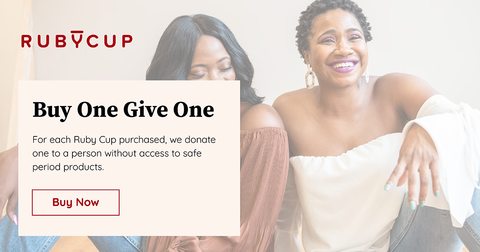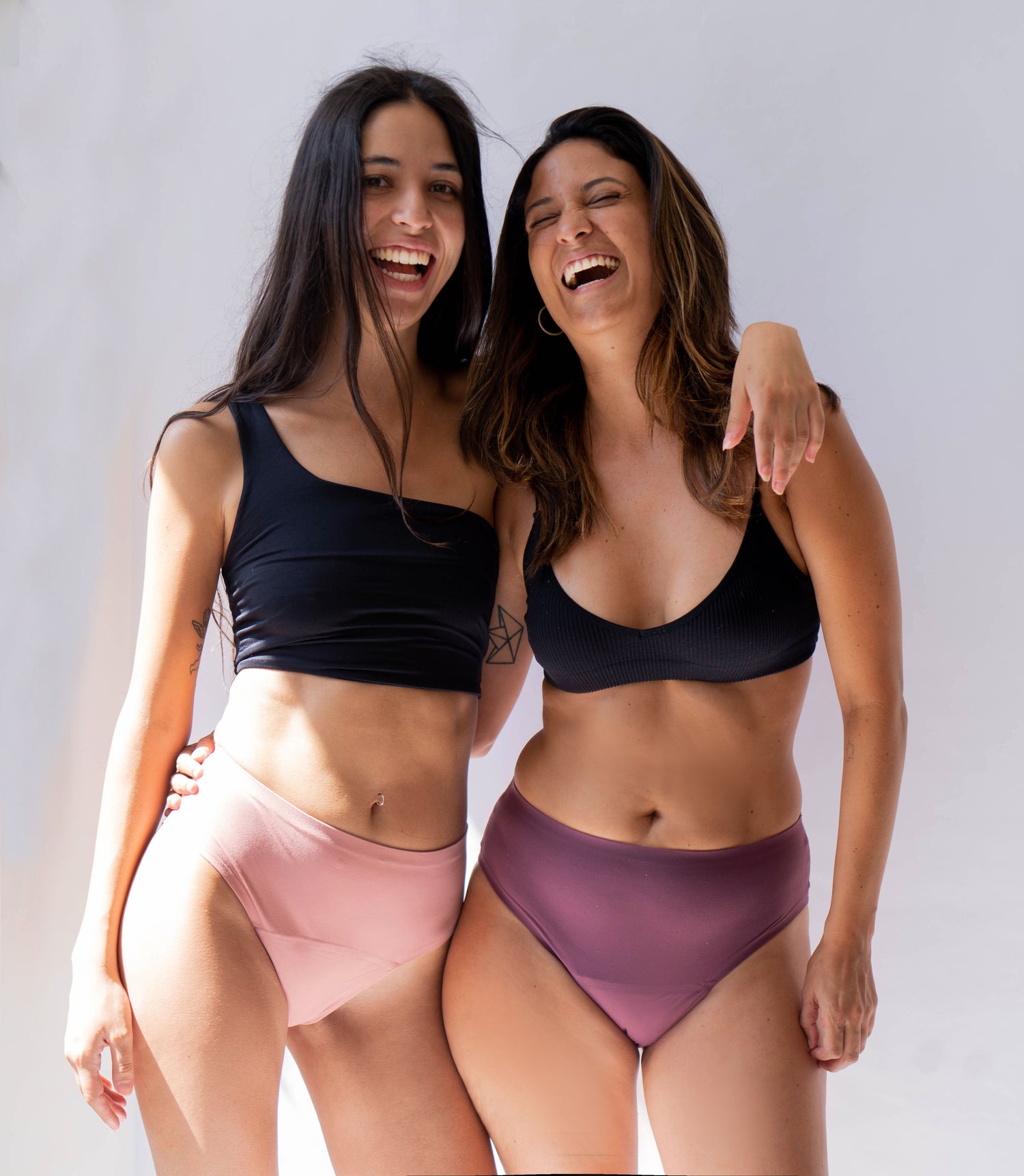Judith from Femme International in Nairobi Tells Us Why She Loves Her Job.
Remember the day you started your first period? It’s confusing for every person who starts their period, but if you were lucky enough to have already been taught about your own body, what menstruation is and what to expect, then it would have been a lot less scary than it is for many young women and girls around the world.
For some, their first period is the first time they’ve ever heard of menstruation. It can be a frightening experience and it can trigger shame and confusion around their changing bodies.
That’s just one of the reasons why Ruby Cup always delivers donated menstrual cups as part of a larger program of education. Around the world, we provide Ruby Cups and sound education to those who don’t have access to adequate period products or information as part of our Buy One, Give One promise.
To ensure that the Ruby Cups have a real impact, we work with local partner organisations in every region where we donate. These partners then donate the menstrual cups as part of a menstrual health education workshop. The workshops are adapted to local contexts to dismantle menstrual health taboos and deliver sound education on reproductive health and menstrual care.
One of our partner organizations is Femme International, who work with local communities in Nairobi, Kenya. We caught up with one of their menstrual health educators, Judith, to find out why she does the work she does and how the workshops are impacting people in local communities.
How did you become a menstrual health educator?
“I started volunteering at Femme International in 2014. I would join the facilitators whenever they went to schools to deliver MHM education. Bit by bit, I learned what it all involved, and then I went on to receive full training, equipping me with the necessary skills to be a facilitator myself.”
How do you prepare for a menstrual health workshop?
Judith tells us that before every session, she makes sure she has all the necessary materials for the workshop. “This includes drawing a diagram of the internal and external sexual reproductive organs which I then give to the participants’ at the start of the session to identify and fill out as many names as they can. Usually, I will speak to the teacher before the session and ask them to tell me about the students and the topics they think I need to emphasize.”
As part of her projects, Judith also speaks to the staff to ensure that the school and community members are aware of the workshop and able to positively support their students and daughters. Having a support system in place is especially important when the girls start using their cups for the first time as it drastically increases the uptake. This is one of the key aspects to having an impactful menstrual cup donation program with a long-term positive impact in mind.
Do you see these workshops having a positive impact in the wider community?
“After the session, I ask the students what they have learned, and whether they would share the education with anyone who might need it, even if it’s their mother. In fact, that’s what I did with my mother when I was first taught.”
Judith encourages the girls to have open conversations about their bodies and to share doubts with their friends, creating a peer-to-peer learning system once her training is over.
This element of our donation programs has proven effective in other programs too. After a menstrual health workshop with one of our partners in Malawi, some of the girls became “Champions of menstruation”, helping their peers to use their Ruby Cup and even being consulted by other community members.
Tell us about your favorite training sessions
“I particularly enjoy teaching male friends about menstrual cups, it’s always fun,” Judith says, adding “my favorite sessions are those where we are joined by few men.”
In these sessions, she familiarizes them with reusable menstrual products and teaches them the same reproductive health workshop the girls receive. That also entails chapters about what it means to have PMS, mood swings, period cramps. She’s always glad to see that after those sessions, most of the men want to take home a Femme Kit (includes a Ruby Cup, a container to boil the cup, a reusable pad, soap and a towel) for their wives and share with them what they just learnt in the session.
Do you offer follow up visits?
Judith tells us that the first visit to the school is just the beginning. Follow-up sessions are crucial to Ruby Cups successful menstrual cup donation programs. Coming back to a school after a couple of weeks and following up with the girls provides a safe space where the trainers have time to gain the girls’ trust.
“This results in the girls feeling less apprehensive about sharing challenges (about using a menstrual cup) and asking questions which, initially, they might not have felt comfortable with at the first session.”
“Furthermore, during the follow-ups we talk about the menstrual cup experiences, mostly tackling issues and sharing successful experiences to motivate others who might have not yet used it.”
How does the Ruby Cup impact the young women you work with?
Judith has seen Ruby Cup impact young women’s lives in a number of ways, but the stories that stick with her most are the stories about young women who were missing out on opportunities before receiving their menstrual cups. Femme International often work with sports clubs and female sports players. During one session, Judith met a young woman called Ella*. “After the session, she text me to tell me that the Ruby Cup had really helped her in the field because she no longer had to miss training. With the Ruby Cup, she could train, even when she had her period.”
What do you find most satisfying about your work?
During workshops, Judith tells a different narrative about periods to the one the young women are familiar with. It’s one that’s free of shame, myths and fear – something that people with periods around the world are likely to be familiar with. That converts Judith and her fellow menstrual health trainers into role models. “Sometimes we leave our contact details in the schools we attend. A girl once told me she was really grateful for the sessions, and particularly the empowerment work. It has inspired her to finish school and help other girls just like we had helped her.”
The educator’s visits inspire the girls, helping them to feel good about themselves and their bodies. Judith identifies with that feeling: “Thinking back, having a menstrual health educator in front of me at primary school would have been a big help because I had an embarrassing first period. The idea that I can prevent that situation for others makes me feel really good.”
*Name changed for anonymity.

 Your Account
Iniciar sesión
Your Account
Iniciar sesión
 Basket
Basket



